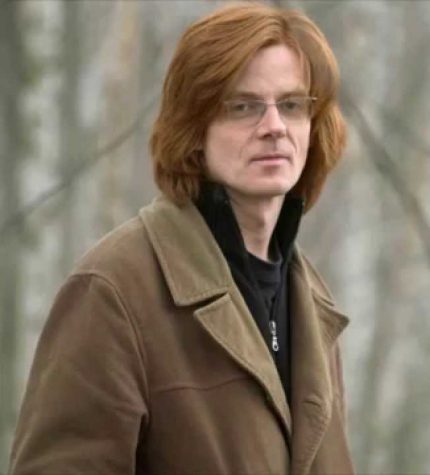Poppe’s music proves a compelling discovery with Dal Niente
Ensemble Dal Niente’s ongoing Proximity series aims to provide an intensive look at contemporary composers whose music might be unfamiliar to Chicagoans.
Enno Poppe, a German composer in his mid-40s who conducted his own works at the ensemble’s concert Sunday afternoon at the Merit School of Music, certainly fits that description. But, like the best of Dal Niente’s Proximity concerts, his rhythmically propelled, sumptuously layered music was a happy discovery.
Poppe works with varied tunings, off-kilter rhythms, and abrupt shifts in volume. Playing his short-breathed melodic lines, the musicians overlapped and interrupted each other like the self-involved characters in a Robert Altman film. Poppe revels in the devices that can turn contemporary music into a disorienting, sometimes infuriating, maze for an average listener.
But there was also something profoundly seamless, a sense of continuous flow to his three works on Dal Niente’s program. An unshakable rhythmic pulse, sometimes grandly scaled and leisurely, sometimes manic, gave each piece a sturdy, architectural underpinning. Even though we had no idea where the music might be headed, we trusted that it was going somewhere interesting, that it was more than just a study in tangled complexity.
The mood was positively merry in Theme with 840 Variations, a brief solo piano work from 1997, performed with virtuoso elan by Winston Choi. Choi thundered through blistering chords, offering a faint hint of high-spirited stride piano here, a morsel of honky-tonk there. At the top of the piano’s register, a blizzard of silvery notes shimmered like icy bells. His playing was crystalline, each note, whether in dense chords or single-note melodic phrases, was crisply articulated.
As a conductor, Poppe drew similarly expressive articulation from the musicians in two ensemble works: Holz (Wood) from 2000 and Stoff (Fabric), a piece for solo clarinet and small ensemble composed this year. With her mellow yet powerful tone, solo clarinetist Katie Schoepflin was a serene focal point in Holz. Unfazed by Poppe’s wide-leaping melodic lines and unpredictable rhythms, she easily rode the ensemble’s sometimes querulous, sometimes amiable accompaniment. While individual violin, viola, cello, flute, saxophones, keyboard and percussion went off in myriad, disparate directions, we had a sense that they were acutely aware of each other’s presence.
With French horn, trumpet and trombone joining the small contingent of winds and strings, Stoff had a weightier, more serious feel. Chris Wild’s cello unfurled touching, meditative phrases while the brass voices were often radiantly burnished.
The concert opened with Rebecca Saunders’ vermilion, an evanescent work for clarinet, cello and electric guitar from 2003.
Poppe conducted the program’s second piece, …sentiers tortueux…(winding paths) by Michael Pelzel, composed in 2007 for three woodwinds, two micro-tuned piano, three strings and percussion including gongs and bells. According to Pelzel’s notes, he was inspired by Frank Gehry’s architecture. The dusky tone of the work’s gongs, along with the clearer, more luminous bells aptly summoned up the curves and swoops of Gehry’s metallic yet somehow soft-edged structures.
Posted in Performances





